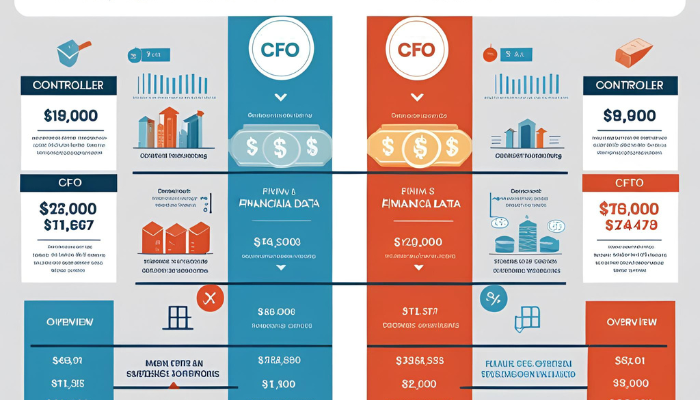
What is the Difference Between a Controller and a CFO?
It is important to know what is the difference between a controller and a CFO for an organization to thrive and be clear about its finances. Both jobs involve managing finances. However, they have distinct but complementary goals. L&Y Tax Advisor further explains what is the difference between a controller and a CFO so you can develop a detailed understanding in this regard.
The Controller: Operations and Financial Integrity
A controller’s main job is to ensure that financial processes are correct and credible. Some key examples that define the role of a controller are:
- Outsourced bookkeeping
- Preparing financial statements
- Reconciling bank
- Reconciling credit card accounts
- Analyzing cash flow
- Job cost accounting
- Payroll services
Controllers are very active in tracking daily finances. They ensure that the rules are followed. They also prepare detailed reports and maintain internal controls. Their work makes it possible for an organization’s figures to be reliable and consistent.
The CFO: Strategic Advisory and Leadership
A CFO works on a higher level. L&Y Tax Advisors calls their services ‘CFO & Business Advisory Services’ since CFOs help with:
- Financial budgeting
- Long-term growth plans
- Monetary decisions
CFOs examine the work of controllers. They develop future plans to help the firm remain practicable and earn more money. They also work with company owners to ensure that their financial operations align with their objectives and growth plans.
Read: What are fractional CFO services?
What is the Difference Between a Controller and a CFO?
| Role | Primary Service | Our Services |
| Controller | Day-to-day accounting, accuracy, compliance | Bookkeeping, financial statements, reconciliations, cash flow analysis |
| CFO | Financial strategy, planning, advisory | CFO & Business Advisory Services, strategic insight |
Read: What is the difference between a fractional CFO and a traditional CFO?
What is the Importance of Both Roles?
A controller’s knowledge ensures that financial data is accurate and reliable. The CFO uses the financial data to:
- Manage risks
- Take advantage of opportunities
- Drive growth
Businesses can combine both positions via outsourced services to provide stability and a long-term plan, even if they do not hire full-time executives.
Skillful Combination of Controller and CFO Expertise
Small and medium-sized enterprises frequently require strong financial help without hiring full-time workers. Our integrated strategy includes outsourced accounting and CFO advice services. Clients get operational discipline and strategic insight without spending too much money.
The Bottom Line
Comprehending what is the difference between a controller and a CFO is necessary to run a successful business. Companies that choose a service-oriented strategy, like the one we offer, may have both skills in a practical and affordable way. Call us now to get the best CFO & business advisory services in the US!


